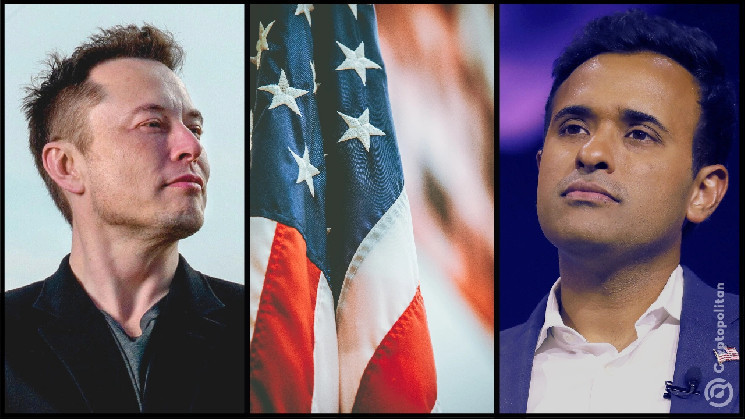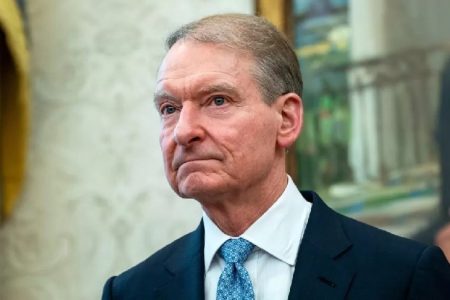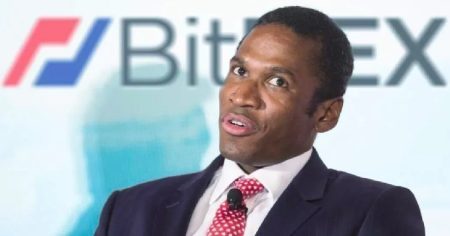Elon Musk, the CEO of Tesla and SpaceX, has embarked on a new venture: reshaping the United States economy through his involvement with the Department of Government Efficiency (D.O.G.E.). Appointed by President-elect Donald Trump alongside biotech entrepreneur Vivek Ramaswamy, Musk’s vision centers on transitioning workers from perceived “low to negative productivity” government jobs to the private sector. He argues that this shift towards tangible output is crucial for strengthening the American economy and addressing its growing trade deficit. This initiative follows Musk’s appearance on Capitol Hill where he and Ramaswamy outlined their plans for federal spending cuts and bureaucratic overhauls.
D.O.G.E., despite its official-sounding name, functions as an advisory body under the executive branch, giving Musk and Ramaswamy significant latitude to propose sweeping reforms. Their mandate involves collecting data, developing solutions, and presenting actionable recommendations to the Trump administration by July 4, 2026. The ambitious goal is to eliminate wasteful spending while preserving crucial programs such as Social Security and Medicare. This undertaking aligns with Trump’s campaign promises and enjoys the support of key Republican figures like House Speaker Mike Johnson, who views the initiative as essential groundwork for upcoming legislative priorities. Senator Thom Tillis highlights the potential for substantial regulatory relief, targeting areas where excessive rules could be streamlined or eliminated.
Operating outside the traditional bureaucratic structure, D.O.G.E. allows Musk and Ramaswamy to bypass conventional constraints and advocate for radical change. Their small team of 10-12 staffers will collaborate with the Office of Management and Budget, while designated liaisons within each federal department will facilitate the implementation of D.O.G.E.’s recommendations. This streamlined structure is designed to foster efficiency and expedite the execution of proposed reforms.
Early targets for D.O.G.E.’s scrutiny include the $6.6 billion federal loan granted to Rivian Automotive, a Tesla competitor. This focus reflects Musk’s longstanding criticism of government subsidies, particularly in the electric vehicle sector. He has consistently advocated for the elimination of all such credits, a stance that resonates with Republican efforts to curb clean energy funding and promote private sector competition. Beyond specific targets like Rivian, D.O.G.E. aims to identify regulations deemed to exceed the legal authority of federal agencies, compiling a list for presidential review. Through executive action, Trump could potentially pause enforcement of these regulations, initiating a process for their eventual rescission. This strategy offers a pathway to immediate cost savings and regulatory relief without requiring congressional approval.
Musk’s growing political influence, however, has attracted considerable attention and criticism. His substantial financial contributions to the Trump campaign through his super PAC, America PAC, and his use of X (formerly Twitter) to amplify pro-Trump messaging have raised concerns about potential conflicts of interest, particularly given SpaceX’s dependence on federal contracts. Critics argue that his dual role as a political influencer and government advisor creates a problematic entanglement of interests, potentially blurring the lines between private enterprise and public service. Furthermore, Musk’s history of impulsive behavior and public feuds fuels apprehension about his potential use of political power to settle personal scores.
The addition of Vivek Ramaswamy to this equation further complicates the matter. His previous run against Trump in the Republican primaries adds another layer of complexity, bringing his own controversial record to the D.O.G.E. initiative. The combination of Musk’s outspoken personality and Ramaswamy’s own political baggage raises questions about the overall direction and potential impact of their collaboration on government efficiency and economic policy. While the stated goals of D.O.G.E. focus on streamlining government and fostering private sector growth, the potential for political maneuvering and personal agendas cannot be ignored.
Ultimately, the success of D.O.G.E. will depend on the efficacy of its recommendations, the willingness of the Trump administration to implement them, and the ability of Musk and Ramaswamy to navigate the complex political landscape. The ambitious timeline, the potential for conflicts of interest, and the inherent challenges of government reform present significant hurdles. Whether this initiative will truly revitalize the American economy or become another source of political controversy remains to be seen. The scrutiny of both the public and political opponents will undoubtedly play a crucial role in shaping the trajectory and ultimate impact of D.O.G.E. on the future of the United States.
![Standard Chartered Cuts Bitcoin and Ethereum Forecasts, Predicts Bottom by [Date] at $[Price]](https://commstrader.com/wp-content/uploads/2026/02/3f2a2e40b5435ea86ade84c25b7ee76c02e7fe3c-300x200.jpg)




![Standard Chartered Cuts Bitcoin and Ethereum Forecasts, Predicts Bottom by [Date] at $[Price]](https://commstrader.com/wp-content/uploads/2026/02/3f2a2e40b5435ea86ade84c25b7ee76c02e7fe3c-450x300.jpg)








